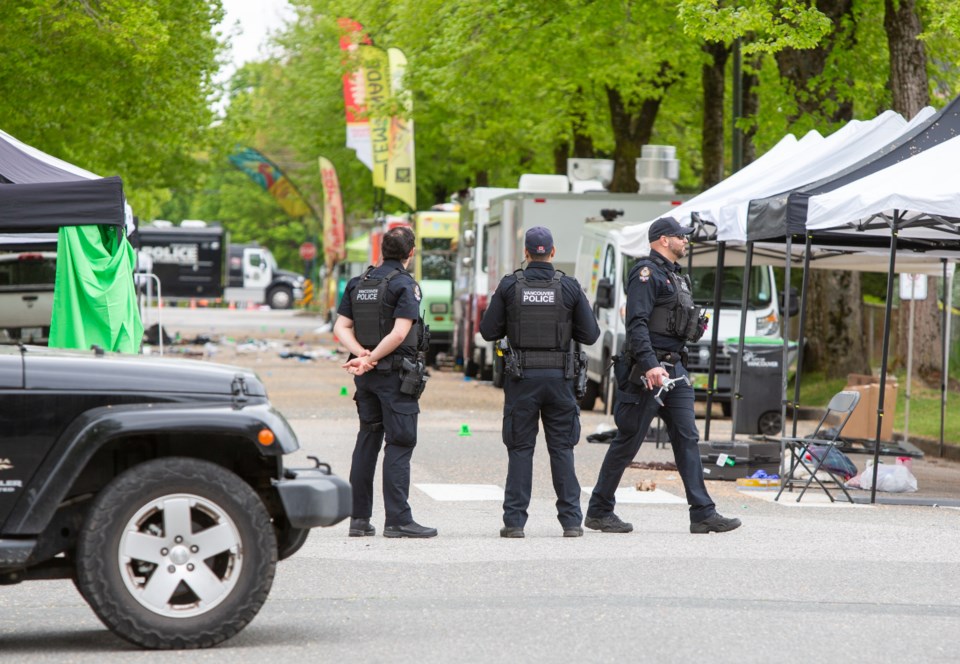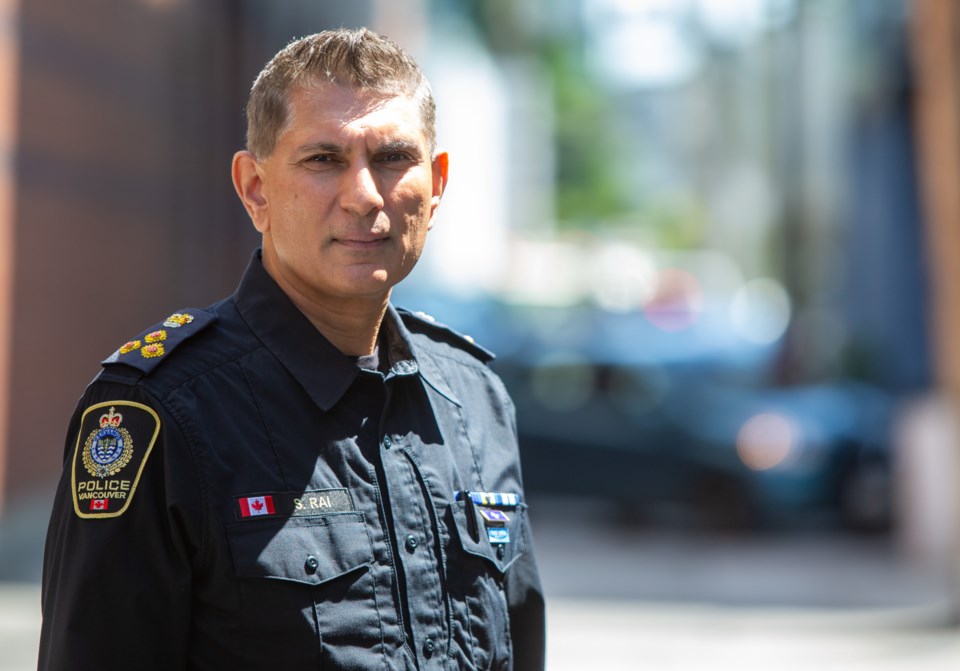Steve Rai was only five years old when he left India with his family to settle in Vancouver.
Fifty-four years later, he has become the 32nd person to lead the Vancouver Police Department and is the organization’s first chief of South Asian descent.
His heritage is a notable fact considering the job of chief in Vancouver has been dominated by a succession of Caucasian leaders, save for former chief Jim Chu, who was born in China and moved to the city with his family at three years old.
For Rai, the connection between his birthplace and his new role as leader of what has become a more diverse police department than when he joined in 1990 is important to him.
But it is not central to how he has carried himself in his policing career.
“I want to be known for competency and leadership,” he said in a recent interview at the VPD’s Cambie Street precinct. “I'm the police chief based on my skills, experience and abilities, and I happen to be South Asian.”
At the same time, he said, he’s proud to not only be connected to the South Asian community but to other immigrant communities, where people have shared stories with him of the work ethic required to achieve goals in Canada.
“Young men that I meet from immigrant communities that are first generation, they’re always trying to prove themselves a little bit more for the same accolades or same respect,” the chief said. “So it's important that people see you can break through. If you work hard, put in an honest effort, educate yourself, you can break through.”
Rai takes over from Adam Palmer, who retired from the department to accept a job as an assistant commissioner with the RCMP. Rai had served as a deputy chief since 2015.
The Vancouver Police Board announced Rai’s appointment May 22, with board chair Frank Chong telling reporters: “We are confident that chief Rai will continue to foster trust within the community, strengthen relationships and lead the department with vision, integrity and courage.”
What follows is a condensed and edited version of a wide-ranging interview BIV conducted with Rai. This is part one of a two-part Q&A. Part two is available here.
How are you adjusting to your new role as chief?
I’ve been here [at the department] since I was 23 years old, so most of my adult life. I'm very comfortable with the department and the people and the personalities. The biggest adjustment is just the volume. In my previous job, it was about running the business. When I was in operations, my core was doing community and patrol and operations—and cops and robbers when I was a district commander. So now I have to look at the whole department and have a whole city mindset. I’m obligated to an even wider audience. The decision-making can’t be narrow.
You officially became interim chief the day before the vehicle ramming tragedy that occurred at the close of the Lapu Lapu Day festival. What was it like to be catapulted into the international media spotlight as the voice and face of the Vancouver Police Department?
The next day after Adam Palmer’s retirement, I woke up, walked my dog, was puttering around doing little things and was going to watch the hockey game. Then I got the call. I wasn't sure the severity of it, but as more information came in, I quickly changed into my uniform and drove right down to the scene. The team was already in. I was really proud to see all the leaders and their areas of control, doing what they had to do. Our officers on the front line—these young police officers—were carrying bodies and the injured; there were so many ambulances that they couldn't get into the scene of the incident.
I was at ground zero in the [Stanley Cup] riot. I have been through a couple of those kind of tests. And at that point, you don't really think about failing, or what do I do. The strength of responsibility and the obligation to deliver the service for the city and the department carries you through. If you're the interim chief, and we've got the biggest mass casualty in our history in B.C.—one of the worst in Canada—you have no choice but to step up. It’s like a lightning bolt of responsibility to do your job.
The hardest thing for me was standing at that press conference at midnight in front of more cameras than I've ever seen and wanting to say more. I was getting text messages from police all over the world—Scotland, the Middle East; they all saw it. My biggest personal conflict internally was that I wanted to give more information out, I wanted to say more. But I didn't want to ruin the ultimate outcome for the victims and their families, which is they want justice.
Do you still maintain that the VPD’s planning for the festival was—in your words—sound?
Yes. If we could turn the clock back, sure there are things we might have done in hindsight. But the planning was sound in the sense that there's a professional template, a professional analysis that's done for 3,000-plus events here a year. It was a family event, no intelligence out there to say anything negative.
We worked with the organizers, and that's always an important piece. They had those lighter traffic barricades that are easily movable because you can let vehicles and food trucks in. They had their volunteer traffic control people. Our patrol district police officers are always in the area and responded to three calls.
But how do you predict somebody for whatever motivation—which is going to come out in court—how do you predict that [they would drive into a crowd of people]? Maybe if this person didn't do this here, he would have driven somewhere else. And then maybe we'd be talking about Robson Street, or somewhere else.
So I would say be confident that the answers will all come out on why and how [the crime occurred]. But based on what I know now and based on the circumstances, [the planning] was sound and I haven't seen any pre-event information to say we missed something.

You mentioned that some of the first officers on scene were in their 20s. What is the department doing to ensure they get the needed support to carry on with their careers?
Some of the horrific things they saw will stay with any normal person for the rest of their lives. We try to mitigate the impact of that in their psyche. We do defusing, debriefings from leadership. I was at every meeting, along with the other deputies supporting them. We had psychologists that came in. We have psychologists that follow up one on one, and then you see who's impacted longer term in the weeks after.
Then you pick those officers out, and you make sure they’re getting customized help. Obviously, they get time off to decompress. We follow up with some of their families, and track them all the way through. You may have to reassign them, if they need that for their own stability. You provide all the supports, the guidance, and you monitor and you intercept where you think somebody needs it.
Everybody is wired differently. The first day after the tragedy, every single one of those officers that attended showed up to work the next day. It was the subsequent days that some people needed a break.
In part two of the Q&A, Chief Steve Rai opens up about rebuilding trust in the justice system, the VPD’s evolving response to addiction and poverty, and why he spends nearly half his time lobbying other levels of government.
X/@Howellings




